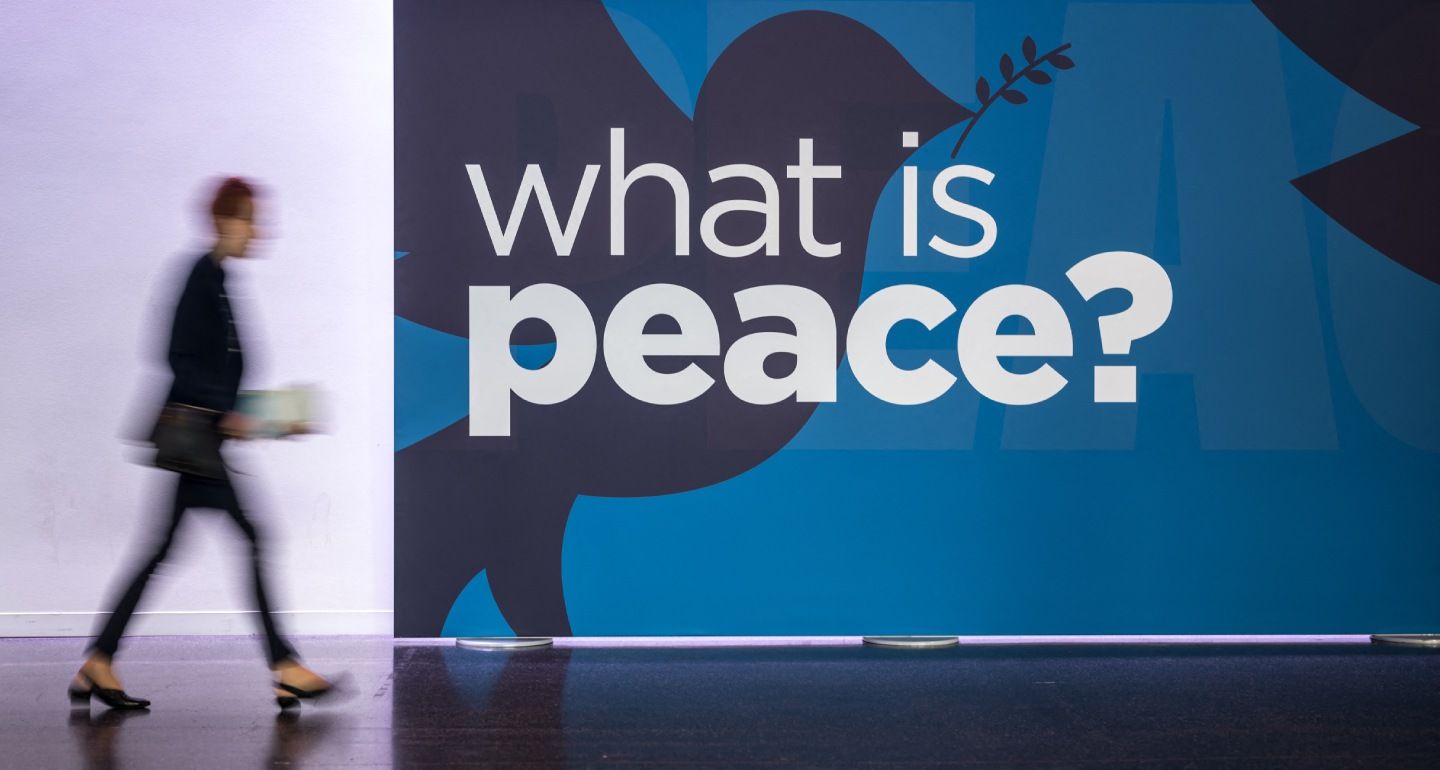What should happen when sanctions designed to weaken the Belarusian regime end up enriching and strengthening the Kremlin?
Denis Kishinevsky
{
"authors": [
"Zaur Shiriyev"
],
"type": "commentary",
"blog": "Carnegie Politika",
"centerAffiliationAll": "",
"centers": [
"Carnegie Endowment for International Peace",
"Carnegie Russia Eurasia Center"
],
"englishNewsletterAll": "",
"nonEnglishNewsletterAll": "",
"primaryCenter": "Carnegie Russia Eurasia Center",
"programAffiliation": "",
"programs": [],
"projects": [],
"regions": [
"Russia",
"Caucasus",
"Central Asia"
],
"topics": [
"Foreign Policy",
"Security",
"Global Governance"
]
}
Source: Getty Images
From Georgia to Kazakhstan, all eyes are on the negotiations to end the war in Ukraine—and the outcome will determine Moscow’s capacity to project influence.
The war in Ukraine must end. And how it ends matters. A peace that results in Russian territorial gains would not only be a betrayal of Kyiv, but deliver a blow to the arc of states on Russia’s periphery that continue to contend with the Kremlin’s neo-imperial ambitions.
In the South Caucasus and Central Asia, the outcome of the war will be nothing less than a litmus test. Ukraine’s heroic resistance has created a rare window of opportunity for Russia’s vulnerable neighbors to loosen Moscow’s grip. Yet that window may now be closing. Not because Russia is winning on the battlefield—it is not—but because Washington appears eager to restore ties with Moscow even if it means ending the war on terms unfavorable for Kyiv. What is emerging increasingly resembles a forced compromise at Kyiv’s expense: détente with Russia in exchange for Ukrainian territory. If Moscow’s aggression results in territorial gains, the message to Russia’s neighbors will be clear: might is right, independence and sovereignty are conditional, and aggression pays off.
Russia’s preoccupation with Ukraine over the last three years, coupled with its waning influence, has opened up space for countries once very much in Moscow’s orbit to exercise greater independence. In the South Caucasus, a sort of fragile progress has taken root. Armenia and Azerbaijan have finalized the text of a peace deal that could end a decades-long conflict that Russia long exploited to maintain its own regional leverage. In 2024, Azerbaijan secured the early withdrawal of Russian so-called peacekeepers, who had been inserted into its territory by Russian President Vladimir Putin at the end of the 2020 war with Armenia—less Baku’s choice than a condition imposed by the Kremlin. At the same time, Armenia has taken steps to loosen its ties with Moscow, securing a partial withdrawal of Russian border guards at the country’s airport in Yerevan and along its border with Iran.
Arm-twisting Ukraine to accept territorial concessions would also reverberate in Georgia, where the government is dominated by a Russia-friendly oligarch and has been ignoring the public’s overwhelming desire for closer ties with Europe. A settlement in Ukraine that validates Russia’s gains would send the wrong signal to Georgians, and encourage its government—elected in a vote marred by fraud allegations—to continue cozying up to Moscow.
Central Asian countries, landlocked and economically tethered to Russia, have always had to manage their relations with Moscow carefully. But Kazakhstan has refused to recognize Russian annexations of Ukrainian territory while pursuing closer ties with the West. Dependent on Russia to transport the bulk of its oil exports, Kazakhstan has expanded shipments via the Caspian Sea and Azerbaijan to the Turkish port of Ceyhan on the Mediterranean coast. Uzbekistan has also been looking for alternative shipping routes to bypass Russia, with the Middle Corridor across Central Asia and the Caspian to the Caucasus and beyond as the preferred option. And Turkmenistan has deepened ties with China.
In a major step toward greater regional cohesion and cooperation, Kyrgyzstan and Tajikistan recently signed an agreement to end their long-running border conflict, which had seen periodic clashes—two years after a similar treaty resolved a border dispute between Kyrgyzstan and Uzbekistan. These agreements mark a shift away from the Soviet legacy of disputes arising from arbitrary border design. And they are being resolved without Russian involvement. While Russia’s presence endures in Central Asia, its pull is visibly weakening.
Western sanctions against Russia have created opportunities for Russia’s neighbors to gain more agency. Cut off from its traditional supply chains, Russia has had to find new ones, and the South Caucasus and Central Asia have become important conduits for Western goods. This new dynamic has strengthened the hand of ex-Soviet countries—particularly members of the Russia-led Eurasian Economic Union, the trading bloc the Kremlin established a decade ago as a counterweight to the European Union.
Central Asian states have sought to use their deepening ties to China as a hedge against Russia. China’s economic engagement with Central Asia far outstrips that of Russia, and by the end of 2024 trade between China and the five Central Asian states was worth $100 billion. In 2023, Chinese leader Xi Jinping hosted his Central Asian counterparts for the first China–Central Asia Summit in Xi’an (Putin was not invited), where China put on a magnificent opening ceremony, and gave promises of $3.8 billion worth of investment. In a sign of China’s geopolitical ambitions in Central Asia, Xi Jinping pledged to defend Kazakhstan’s sovereignty and territorial integrity on a visit in 2022—a pointed gesture given that Kazakhstan is the only Central Asian country that shares a border with Russia.
Central Asia and the South Caucasus have stepped up joint efforts to reduce their dependence on Russia as a trade gateway—a trend driven by the effect of sanctions, and the growing Western support for global market diversification. The most visible such project is the so-called Middle Corridor, linking China to Europe via both regions. Once aspirational, it is now operational. Green energy cooperation is also emerging, with projects linking power grids and renewable exports across the Caspian.
But these processes still lack adequate investment, coordination, and sustained Western support. Without this, the opportunities created by Russia’s distraction with the war in Ukraine will be lost. The risk is that once done with Ukraine, Russia will turn its attention back to its neighbors—exerting pressure or offering economic incentives to pull them back into its orbit—even as its ability to reclaim true hegemony has likely passed. At the same time, many in the region quietly fear the West will return to business as usual with Moscow, possibly as a consequence of a U.S.-led push to end the war in Ukraine. This could stall the emergence of the South Caucasus and Central Asia as viable alternatives to the Russian-dominated transit routes that were prevalent before the full-scale invasion.
This is why any Ukraine settlement will be closely watched across the former Soviet space. A deal that cements Russia’s territorial gains would not end the war—it would merely redraw lines on a map, most likely temporarily. And an emboldened Russia will not be content with limited gains. Its ambitions go beyond Ukraine’s borders. A deal imposed on Ukraine would mean that borders remain open to revision, show that power overrides principle, and give legitimacy to the idea of a Russian sphere of influence. Such an outcome must be avoided at all costs. Negotiators should work toward a settlement that Russia can live with, but not one that rewards aggression, or grants Moscow the influence it seeks to reclaim.
Carnegie does not take institutional positions on public policy issues; the views represented herein are those of the author(s) and do not necessarily reflect the views of Carnegie, its staff, or its trustees.
What should happen when sanctions designed to weaken the Belarusian regime end up enriching and strengthening the Kremlin?

Denis Kishinevsky
The supposed threats from China and Russia pose far less of a danger to both Greenland and the Arctic than the prospect of an unscrupulous takeover of the island.

Andrei Dagaev
Western negotiators often believe territory is just a bargaining chip when it comes to peace in Ukraine, but Putin is obsessed with empire-building.

Andrey Pertsev
Unexpectedly, Trump’s America appears to have replaced Putin’s Russia’s as the world’s biggest disruptor.

Alexander Baunov
Baku may allow radical nationalists to publicly discuss “reunification” with Azeri Iranians, but the president and key officials prefer not to comment publicly on the protests in Iran.

Bashir Kitachaev